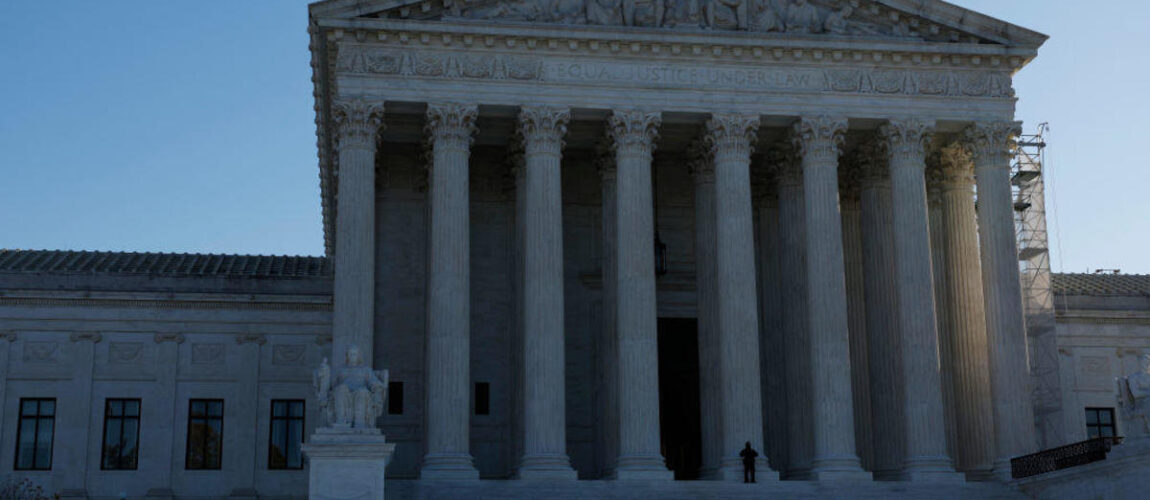washington – The Supreme Court on Monday declined to accept a Hawaii man’s appeal of his prosecution for carrying a handgun without a license, leaving intact a state supreme court decision that struck down its new framework for determining whether laws on guns conform to the Second Amendment.
Justice Clarence Thomas, in a statement joined by Justice Samuel Alito, criticized the Hawaii court for its decision, but said the high court was right to dismiss the challenge on technical grounds. However, he wrote that the court should hear a “proper case” to “make clear that Americans are always free to invoke the Second Amendment as a defense against unconstitutional firearms licensing schemes.” .
The court established the so-called “history and tradition” standard in a landmark Second Amendment decision in June 2022. The test requires the government to demonstrate that a gun law is consistent with the nation’s historic tradition of firearms regulation.
The Supreme Court provided some clarity on its new standard last June, when it did maintained a federal firearms ban for alleged domestic abusers, but lower courts have still struggled to apply the framework when evaluating the constitutionality of firearms restrictions. This decision involved whether certain categories of people, namely those who pose a credible threat to others, can be temporarily disarmed.
The Hawaii case involved the state’s rules for licenses to carry handguns in public. Under the state’s scheme, residents must obtain a permit to legally own a firearm. Anyone who wants to carry a gun publicly must also obtain a carry license, which can be acquired by demonstrating “urgency or necessity,” good moral character, and being “dedicated to the protection of life and property.”
Applicants must also be at least 21 years old and a US citizen. Police departments had the discretion to deny licenses.
In December 2017, Christopher Wilson was arrested after he and a group of hikers found themselves on a trail that crosses private property into the mountains of West Maui. Wilson and his fellow hikers told police they saw no “no trespassing” signs on the property and were heading into the mountains to look at the moon and planets. Wilson also told police he had a gun, and a loaded handgun was seized from his waistband.
Wilson did not have a permit to acquire a weapon or a license to carry one and was charged with violating Hawaii laws for carrying or possessing a handgun.
Wilson sought to have the charges dismissed, arguing they violated his Second Amendment rights under two recent Supreme Court decisions, one of which said the Constitution guarantees the right to keep a gun at home for self-defense own
Wilson’s bid to drop the charges was denied, but shortly thereafter, the Supreme Court issued its June 2022 ruling that expanded gun rights and established its test of history and tradition to evaluate the constitutionality of the rules on firearms.
After that decision, Wilson again tried to have the charges against him dismissed, arguing that under the Supreme Court’s standard he was legally allowed to carry a firearm for self-defense, and the state had to justify your licensing scheme.
A trial court sided with Wilson and dismissed the charges against him. But the Hawaii Supreme Court reversed that decision, concluding that prosecuting Wilson for carrying a gun did not violate the Constitution. The Hawaii court also criticized the nation’s highest court for its Second Amendment rulings.
The state Supreme Court said the Supreme Court “distorts and selects historical evidence” in its Second Amendment cases and accused the high court of ad-libbing a new standard for evaluating gun laws.
Referring to the Supreme Court’s latest decision, the Hawaii Supreme Court said its new test is a “backward approach” that “ignores today’s realities.”
“The spirit of Aloha collides with a federally mandated lifestyle that allows citizens to walk around with deadly weapons during day-to-day activities,” Hawaii’s highest court said. he wrote.
Wilson, represented by public defenders, appealed to the Supreme Court, arguing that the Hawaii court showed “open hostility to individual rights protected by the Second Amendment.”
They warned in a archiving that the court’s refusal to apply the history and tradition test “overturns the constitutional order between the States and the national government. When constitutional rights are embodied in the Fourteenth Amendment, the States must recognize”.
In a filing Monday, Thomas said the Hawaii Supreme Court’s decision “failed to give due consideration to the Second Amendment.”
“If the Hawaii Supreme Court had followed through on its duty to consider the merits of Wilson’s defense, the unconstitutionality of the licensing scheme should have been obvious,” he wrote.
But Thomas noted that “correcting the Hawaii Supreme Court’s error must wait for another day,” as Wilson sought to dismiss only some of the charges and asked the court to review an “interlocutory order on the which we may not have jurisdiction”. Thomas said Wilson could ask the court to review the case again after the trial.
Justice Neil Gorsuch echoed that sentiment in a statement of his own, writing that “Mr. Wilson remains free to seek review by this Court after the final ruling.”

